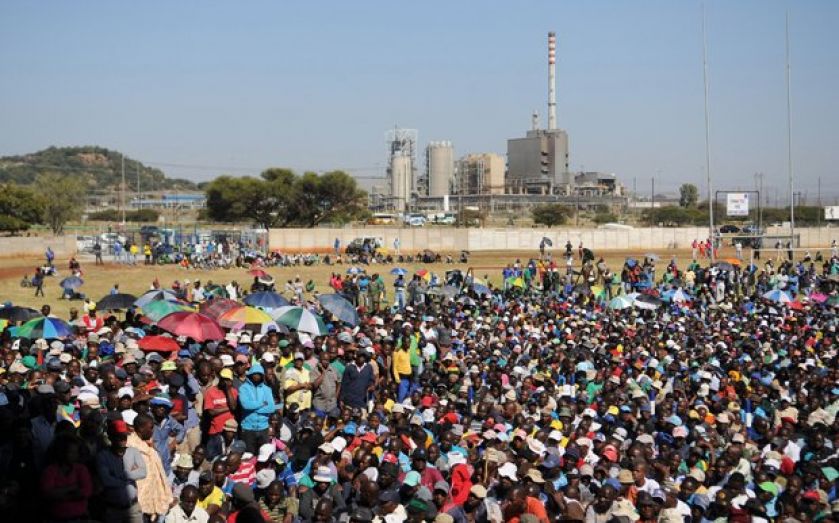South African economy hit by miners’ strikes

SOUTH Africa’s economy has contracted for the first time in five years, after a platinum miners’ strike crippled production, new statistics showed yesterday.
GDP decreased by 0.6 per cent in the first quarter of 2014, with the main contributor being a 24.7 per cent year-on-year decline in activity in the mining and quarrying industry, according to figures from Statistics South Africa.
In the last quarter of 2013, GDP grew by 3.8 per cent. Workers at South Africa’s three largest platinum miners – Lonmin, Ampala Platinum and Impala Platinum – have been on strike for 18 weeks demanding higher pay.
The three companies, which collectively produce over half of the world’s platinum, have lost over 18.5bn rand (£1.1bn) in revenue, after failing to reach an agreement with the dominant Association of Mineworkers and Construction Union (Amcu).
Workers have lost 9bn rand in wages during the deadlock, with no end in sight. A number of employees trying to return to work have been stabbed or burnt to death, amid reports of threats and intimidation, leaving the miners’ plans to resume production in jeopardy.
The country’s manufacturing industry saw the second biggest fall in activity, dropping 4.4 per cent over the quarter.
South African President Jacob Zuma was sworn in for his second term last weekend and has changed his mines and energy ministers as part of a quickfire cabinet shake-up.